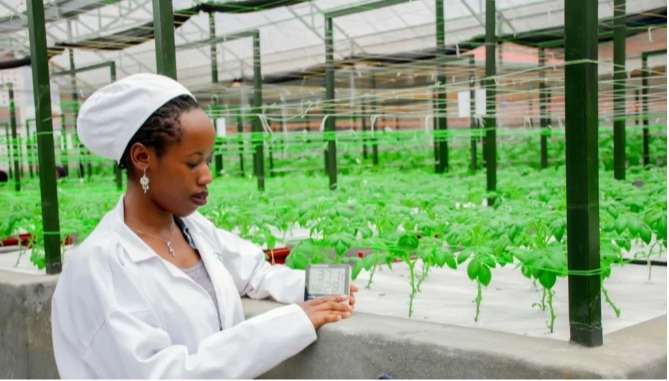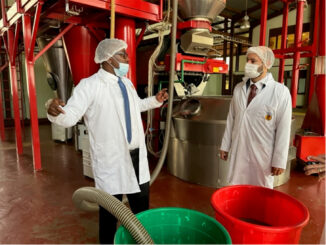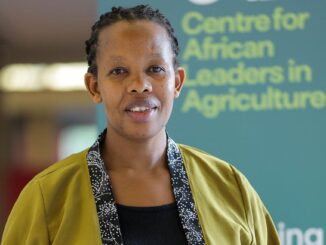

Theofrida Maginga, a young female student at the University of Rwanda is currently in the process of creating ‘Mkulima GPT,’ a ChatGPT-driven Swahili chatbot with the mission is to empower smallholder farmers by detecting crop diseases and providing culturally-sensitive agricultural advice.
The project ‘Mkulima GPT,’ is a combination of AI and IoT to aid small-scale farmers, especially those with limited resources. The founder Theofrida Maginga says she comes from a background where we depend on the cultivation of Agriculture.
“So in this aspect you look at so many farmers being left behind when it comes to technology, one of the technologies we are using is CHATGPT and I know most farmers don’t really know about it or they are probably not interested but we can make great use of these artificial intelligence technologies.” – she adds.
What makes ‘Mkulima GPT’ different is that is committed to local languages and its vision to expand services to more African languages. To facilitate accessibility, ‘Mkulima GPT’ has already established an online presence through a dedicated website and a WhatsApp phone number where farmers can ask queries that cover a wide range of topics, including farm preparation, maize disease management, and post-harvest procedures.
Maginga says they are expecting to have multiple numbers of farmers to use this technology and they are looking at the possibility of including Kinyarwanda into CHATGPT as well. She says when they were developing the application we got to interact with farmers and one of the crop diseases was [head] smut.
“[Head] smut keeps [spreading] because the practices are poor, but the application keeps on reminding of the good practices and not the practices that bring back the disease.” – she added.
Currently in testing, the project welcomes user feedback and plans to launch in December, with input from agriculture and AI experts to enhance its capabilities before reaching smallholder farmers.



